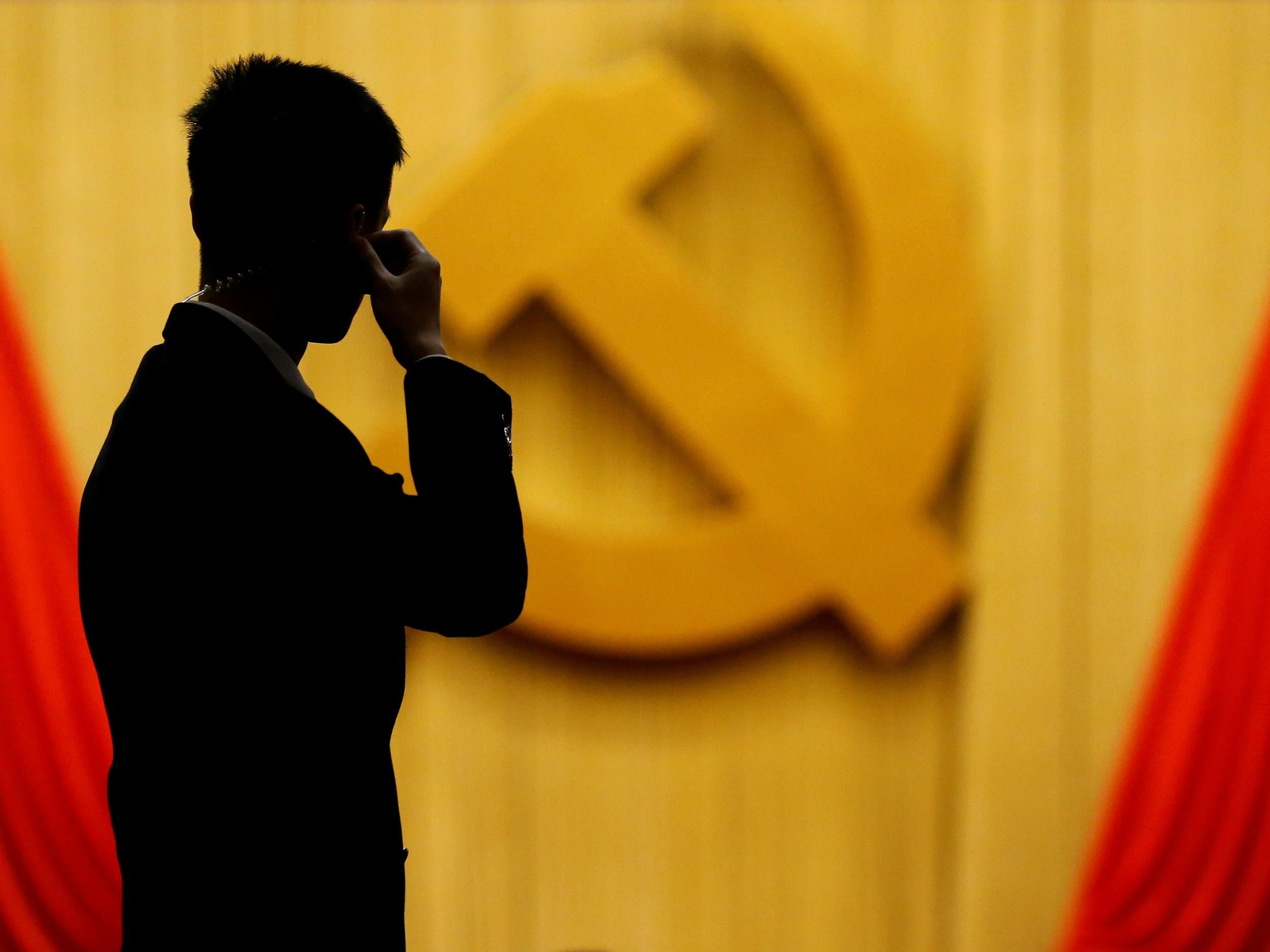China's National Congress: How a crucial detail suggests Xi Jinping wants to stay in power for decades
President elevated to same status as Mao Zedong and Deng Xiaoping

Your support helps us to tell the story
From reproductive rights to climate change to Big Tech, The Independent is on the ground when the story is developing. Whether it's investigating the financials of Elon Musk's pro-Trump PAC or producing our latest documentary, 'The A Word', which shines a light on the American women fighting for reproductive rights, we know how important it is to parse out the facts from the messaging.
At such a critical moment in US history, we need reporters on the ground. Your donation allows us to keep sending journalists to speak to both sides of the story.
The Independent is trusted by Americans across the entire political spectrum. And unlike many other quality news outlets, we choose not to lock Americans out of our reporting and analysis with paywalls. We believe quality journalism should be available to everyone, paid for by those who can afford it.
Your support makes all the difference.China‘s Communist Party has broken with recent tradition by failing to include a clear successor to President Xi Jinping in its new leadership.
None of the members of the seven-man line-up are young enough to be heir to the president, suggesting he could stay in power beyond 2022.
The party had already elevated President Xi’s status by inserting “Xi Jinping Thought” into the party’s constitution alongside past leaders Mao Zedong and Deng Xiaoping.
Professor Kerry Brown, associate fellow in Chatham House’s Asia programme, told The Independent the line-up leaves the space open for Mr Xi to continue as leader of the party indefinitely.
Mr Brown said Mr Xi could continue as head of the Communist Party even after he had finished two terms as president, serving as long as his health or political circumstances allowed.
“The presidency isn’t where the power is, the power is with the party. In theory, he could stay on for 15 or 20 years.”
He added: “It’s deeply dependent on what the political circumstances are in three or four years time. If he’s done a great job and people still think he’s great, then he’s got a good chance of staying on.”
Mr Brown said the president’s stronger position means he could take a harder line on North Korea and China’s desire to expand into the South China Sea.
Apart from President Xi, Premier Li Keqiang was the only one to retain his spot amid sweeping changes on the Politburo Standing Committee, the height of power in the world’s second-largest economy.
Li Zhanshu, Wang Yang, Wang Huning, Zhao Leji and Han Zheng were promoted, replacing five retiring members including anti-corruption chief Wang Qishan, a key Xi ally.
All seven are in their sixties, and for the first time no Standing Committee member will have been born before the 1949 Communist revolution.
No women have ever made it onto the Politburo Standing Committee, despite the list of delegates being hand-crafted to burnish the party’s image as “representative of the masses”.
In the new Politburo, only one of 25 members is a woman. Sun Chunlan, the head of the party body charged with outreach to non-Communists, is in her second term and is likely to retire in five years.
China ranked 74th in political empowerment of women out of 144 countries in the World Economic Forum’s global Gender Gap Report last year.

Mr Xi said his return as general secretary constituted “not just approval of my work but also encouragement that will spur me on.”
“In this new context, we must get a new look and more importantly, make new accomplishments,” he said in comments to reporters at a brief ceremony at the Great Hall of the People to introduce the new Politburo Standing Committee.
The makeup of the committee reflects the president’s efforts to foster party unity by striking a balance between different interest groups in the 89-million member organization as he seeks to better position a reinvigorated party to dominate China’s affairs at home and abroad.
They will assume responsibility for running the rubber-stamp legislature, the National People’s Congress and its advisory body, the Chinese People’s Political Consultative Conference, and assume a range of portfolios, including those responsible for propaganda, party discipline, ethnic and Taiwan affairs and science and technology.
Mr Xi has made his wide-ranging anti-corruption campaign the hallmark of his first five years in office. While popular among ordinary Chinese, it is seen as part of a drive to purge his rivals and political opponents and boost supervision over the party at all levels.

Alongside the campaign, the president has overseen one of the harshest crackdowns on civil society aimed at crushing dissent and activism among lawyers and rights advocates.
The new leaders will face challenges that include reining burgeoning levels of debt seen as the biggest threat to economic stability and managing trade tensions with Washington and Europe over China’s excess production of steel and other goods.
They will also have to tackle the risk of war over neighbouring ally North Korea’s nuclear program, manage the crucial relationship with the US and navigate delicate ties with Southeast Asian nations wary of Beijing’s expansion in the disputed South China Sea.
President Xi has outlined his vision of strengthening the party’s role in Chinese life and shepherding China’s rise to prominence at a time when the United States and others in the West are seen to be in retreat.
Additional reporting by agencies
Join our commenting forum
Join thought-provoking conversations, follow other Independent readers and see their replies
Comments